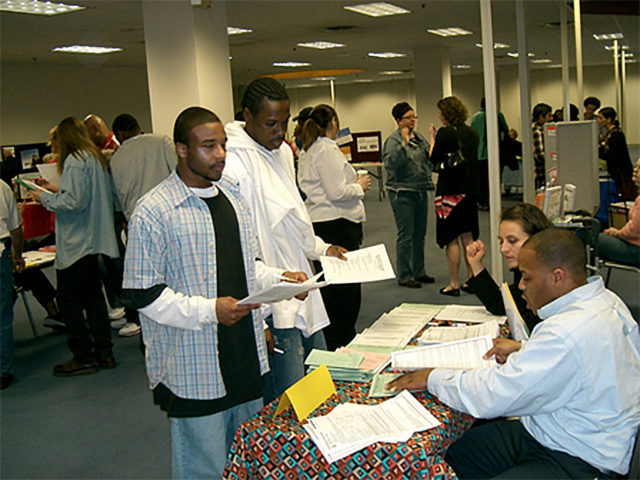United Way of Dane County is hosting a launch for their revived plan for their Journey Home Initiative this morning at the Warner Park Community and Recreation Center that will provide holistic, evidence-based strategies to help returning citizens from the prison system reintegrate successfully back into the community.
“We’ve had a delegation that had been working for about a year looking at all of the data, looking at our strategies for when we began this initiative back in 2006 and they determined that we are on a great path and having a good impact,” Angela Jones, Director of Community Impact – Income at United Way of Dane County, tells Madison365. “However, there was an additional strategy that they wanted to add to the body of that work after we had an opportunity to meet with some of the returning citizens that are part of this initiative.”
“Journey Home: A RESET for Returning Citizens” will be the public launch of United Way’s updated 2019 Journey Home Mobilization Plan. Journey Home has been working to connect ex-offenders and families with community resources to reduce the re-incarceration rate.

“We actually went out to Oakhill Correctional Facility and one of the things that we heard was that they needed some assistance in being able to reconnect with their children once they get out,” she adds. “So that is now part of our new educational strategy to help them be more successful when they get out and also help them to reconnect with their kids. Our hope is that with this reconnection and having both parents in their lives that this will be a positive factor for kids not going into prison themselves.”
With this updated plan, the United Way will be adding an “Education” strategy to their current strategies of Residency, Employment, Support and Treatment; thereby providing returning citizens an opportunity to RESET their lives.

This morning’s program will begin with a welcome from Noble Wray, the former Chief of Police for the Madison Police Department. It will feature a panel moderated by Renee Moe, president & CEO of United Way of Dane County, along with Jones; Pajarita Charles, Ph.D., assistant professor at University of Wisconsin-Madison School of Social Work; Tony Koblinski, president and CEO of Madison-Kipp Corporation and chair of the Journey Home Delegation; and Linda Ketcham, executive director of Madison-area Urban Ministry (MUM).
According to the United Way, between 300 to 700 individuals return from prison to Dane County every year and within two years of release and 19 percent of those individuals return to prison, which is greatly reduced from the 66 percent return-to-prison rate they saw in 2003 when they began looking at this data. In addition to reducing the re-incarceration rate, according to a press release from the United Way, helping returning citizens is important for the following reasons.
- Returning citizens who fail to successfully reintegrate with the community are likely to violate rules or commit new crimes. This threatens the peace and safety of our community.
- Without employment, returning citizens cannot make it — find housing, reunify with their family, or become productive members of the community.
- Families suffer when the primary wage earner is not able to find employment. Children of returning citizens are likely to become incarcerated, too.
- When returning citizens re-offend, taxpayers pay not only the cost of re-incarceration (the average cost to the state is around $30,000 annually per person), but also increased supports needed for families.
At this morning’s “Journey Home: A RESET for Returning Citizens” breakfast, community members will learn specifically about the new Parenting Inside Out (PIO) curriculum focused on improving parenting roles, skills and behaviors as returning citizens reconnect with their families.
“What’s unique about this PIO is that it is evidenced-based but it also designed particularly for folks who are returning to the community,” Jones says. “This curriculum was developed by Dr. Mark Eddy and he was actually here in Madison with us to talk through the curriculum with us and talk through some of the research that he has done. It is now available in 33 different communities which we think is really fantastic.”
Jones says that one of the things that the team found most impressive is that the curriculum will be available in three different systems.
“It’s available for folks who may be in our county jail but then MUM will provide the community portion of the curriculum and then we are hoping to pilot this at Oakhill Correctional Facility this fall,” she says. “Regardless of where folks might be … if they are looking to get involved with this curriculum to help get reconnected to their kids, they can continue to do that.”
The United Way also notes that children of incarcerated parents experience higher infant mortality, childhood health problems, cognitive and academic problems, externalizing behavior problems (especially aggression), internalizing behavior problems, additional adverse childhood experiences (ACEs) and poor mental and physical health in adulthood.
The Journey Home Initiative has made an impact over its 13 years, but the United Way feels like it can make even more as they add the new education strategy.
“Right now, folks going through the Journey Home program only have a 10 percent return-to-prison rate,” Jones says. “We are excited because with the PIO also you can see that they have a really good rate of folks who are not returning to prison, as well. So we think that with the combination that we will continue to see some really good rates.
“Being able to be connected with your kids is so important. It’s heartbreaking for me to hear some of the guys talk about how difficult it was for them to reconnect with their kids because even when they are visiting, the visitation is really limited,” she continues. “You don’t get a chance to do a lot of touching of the kids and we know how important touch is for kids. What I like about the MUM portion – or the community portion – of PIO is that for us they will be able to practice with the co-parent. So both will be able to learn the skills at the same time and use the same parenting skills. It will provide more consistency for both parents.”
For more information about the Journey Home Mobilization Plan, click here.




























